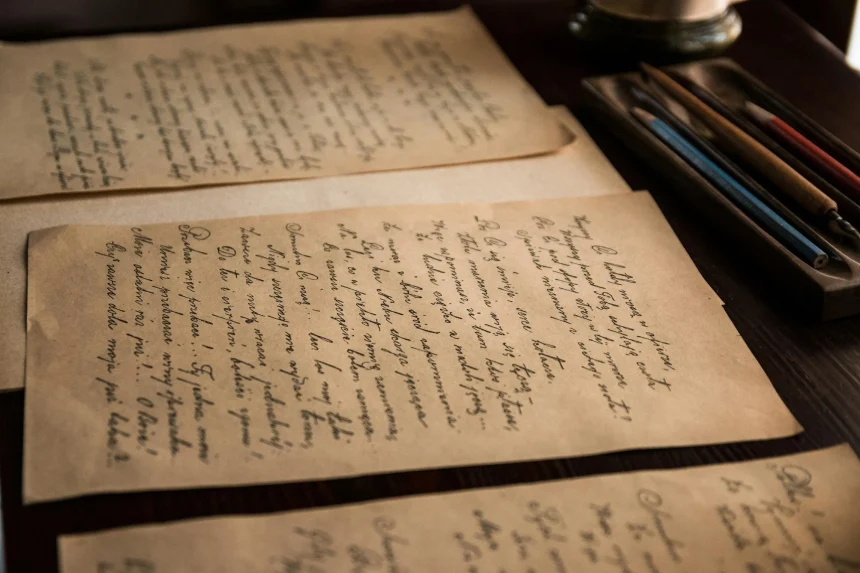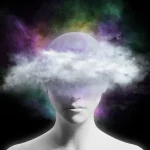English literature is a vast and enchanting world that spans centuries, continents, and cultures. It is a tapestry woven with stories of love and loss, triumph and tragedy, dreams and despair. From the ancient epics of “Beowulf” to the modern masterpieces of contemporary authors, English literature offers a rich and diverse landscape for exploration. In this blog, we’ll embark on a journey through the ages, discovering key periods, influential authors, and timeless works that have shaped the course of English literary history. We’ll delve into the essence of literature and why it continues to captivate readers worldwide.
The Roots of English Literature
Old English Literature (c. 450-1066)
The origins of English literature can be traced back to the Anglo-Saxon period, where the language known as Old English was spoken. This era produced some of the earliest known works of English literature, with “Beowulf” being the most famous. This epic poem, set in Scandinavia, tells the story of the hero Beowulf who battles the monstrous Grendel, Grendel’s mother, and a dragon. The themes of heroism, fate, and the struggle between good and evil are timeless and continue to resonate with readers today.
Other notable works from this period include “The Seafarer” and “The Wanderer,” both of which are elegiac poems reflecting on themes of exile and longing. These early texts provide a glimpse into the life and beliefs of the Anglo-Saxon people, their struggles, and their view of the world.
Middle English Literature (1066-1500)
The Norman Conquest of 1066 brought significant changes to the English language and its literature. Middle English literature saw a blend of Anglo-Saxon and Norman French influences, leading to a rich and diverse literary tradition. One of the most significant works from this period is Geoffrey Chaucer’s “The Canterbury Tales.” Written in the late 14th century, this collection of stories is presented as part of a storytelling contest by a group of pilgrims traveling to Canterbury. Chaucer’s work is celebrated for its vivid characterization, humor, and insight into the human condition.
Another key figure from this era is William Langland, whose allegorical poem “Piers Plowman” explores themes of morality, religion, and social justice. The period also saw the emergence of Arthurian legends, with works like Sir Thomas Malory’s “Le Morte d’Arthur,” which chronicles the rise and fall of King Arthur and his knights of the Round Table.
The Renaissance and Elizabethan Era (1500-1660)
The Renaissance was a time of great cultural and intellectual awakening in Europe, and English literature flourished during this period. The invention of the printing press by Johannes Gutenberg in the mid-15th century played a crucial role in the dissemination of literary works, making literature more accessible to the public.
William Shakespeare
No discussion of English literature is complete without mentioning William Shakespeare, the Bard of Avon. His contributions to literature are unparalleled, with 38 plays, 154 sonnets, and two long narrative poems. Shakespeare’s works span various genres, including tragedies like “Hamlet,” “Othello,” “King Lear,” and “Macbeth”; comedies such as “A Midsummer Night’s Dream,” “Twelfth Night,” and “Much Ado About Nothing”; and histories like “Henry V” and “Richard III.” His exploration of human nature, complex characters, and poetic mastery continue to influence writers and captivate audiences worldwide.
Christopher Marlowe and Ben Jonson
Shakespeare was not the only luminary of this era. Christopher Marlowe, a contemporary of Shakespeare, made significant contributions with his plays like “Doctor Faustus” and “Tamburlaine.” Marlowe’s works are known for their poetic grandeur and exploration of ambitious, often tragic heroes.
Ben Jonson, another important figure, is renowned for his satirical plays like “Volpone” and “The Alchemist.” Jonson’s works often critique the social norms and behaviors of his time, using wit and humor to expose human follies.
The Seventeenth Century and the Metaphysical Poets
The 17th century was marked by political upheaval and religious conflict in England, and this tumultuous period found expression in its literature. The metaphysical poets, including John Donne, Andrew Marvell, and George Herbert, are known for their complex imagery, intellectual rigor, and exploration of themes such as love, faith, and mortality.
John Milton
John Milton’s “Paradise Lost,” an epic poem published in 1667, is one of the most significant works of English literature. It tells the story of the fall of man, exploring themes of free will, obedience, and the nature of good and evil. Milton’s profound influence on English literature and his masterful use of blank verse solidify his place among the greats.
The Restoration and the 18th Century
The Restoration of the monarchy in 1660 brought about a new era in English literature. This period saw the rise of satirical and didactic literature, reflecting the social and political changes of the time.
John Dryden and Alexander Pope
John Dryden was a dominant literary figure during the Restoration, known for his plays, poetry, and criticism. His satirical works, such as “Mac Flecknoe,” and his heroic plays, like “All for Love,” demonstrate his versatility and command of the English language.
Alexander Pope, a key figure of the 18th century, is celebrated for his satirical verse and mastery of the heroic couplet. Works like “The Rape of the Lock” and “The Dunciad” showcase his wit, literary skill, and keen insight into the human condition.
The Rise of the Novel
The 18th century also witnessed the rise of the novel as a literary form. Daniel Defoe’s “Robinson Crusoe” and Samuel Richardson’s “Pamela” are often cited as early examples of the novel. These works paved the way for later novelists, exploring themes of individualism, social mobility, and the complexities of human relationships.
Jonathan Swift
Jonathan Swift’s “Gulliver’s Travels” is a seminal work of 18th-century literature. This satirical novel, through the fantastical voyages of Lemuel Gulliver, critiques human nature, society, and politics. Swift’s sharp wit and imaginative storytelling make “Gulliver’s Travels” a timeless classic.
The Romantic Era (late 18th to mid-19th century)
The Romantic era was characterized by a focus on emotion, nature, and individualism. This period saw a departure from the rationalism of the Enlightenment, with poets and novelists seeking to capture the sublime beauty and raw emotion of the natural world and human experience.
William Wordsworth and Samuel Taylor Coleridge
William Wordsworth and Samuel Taylor Coleridge are considered the pioneers of Romantic poetry. Their joint publication, “Lyrical Ballads,” is a landmark in English literature. Wordsworth’s poems, like “Tintern Abbey” and “I Wandered Lonely as a Cloud,” celebrate the beauty of nature and the depth of human emotion. Coleridge’s “The Rime of the Ancient Mariner” and “Kubla Khan” are known for their vivid imagery and exploration of the supernatural.
Lord Byron, Percy Bysshe Shelley, and John Keats
Other notable Romantic poets include Lord Byron, known for his passionate and often rebellious works like “Don Juan” and “Childe Harold’s Pilgrimage”; Percy Bysshe Shelley, whose poems like “Ode to the West Wind” and “Prometheus Unbound” reflect his radical ideas and lyrical beauty; and John Keats, celebrated for his sensuous imagery and exploration of mortality in poems like “Ode to a Nightingale” and “To Autumn.”
Jane Austen
In the realm of prose, Jane Austen’s novels stand out for their keen social commentary, wit, and exploration of the lives and relationships of the English gentry. Works like “Pride and Prejudice,” “Sense and Sensibility,” and “Emma” offer a nuanced look at the roles and limitations of women in the early 19th century.
The Victorian Era (1837-1901)
The Victorian era, named after Queen Victoria, was a time of significant social, economic, and technological change. The literature of this period reflects these changes, often addressing issues of industrialization, social inequality, and morality.
Charles Dickens
Charles Dickens is perhaps the most prominent author of the Victorian era. His novels, such as “Great Expectations,” “David Copperfield,” “A Tale of Two Cities,” and “Oliver Twist,” provide a vivid portrayal of 19th-century England, highlighting the plight of the poor and the injustices of the social system. Dickens’ memorable characters and intricate plots continue to captivate readers.
The Brontë Sisters
The Brontë sisters—Charlotte, Emily, and Anne—made significant contributions to Victorian literature. Charlotte’s “Jane Eyre,” Emily’s “Wuthering Heights,” and Anne’s “The Tenant of Wildfell Hall” are celebrated for their exploration of complex characters, gothic elements, and social criticism.
Thomas Hardy
Thomas Hardy’s novels, such as “Tess of the d’Urbervilles” and “Jude the Obscure,” often depict the harsh realities of rural life and the struggles of individuals against societal norms and fate. Hardy’s use of tragic themes and his portrayal of the often bleak human condition have left a lasting impact on English literature.
The Modernist Movement (early 20th century)
The early 20th century brought about a radical shift in literature with the advent of Modernism. This movement sought to break away from traditional forms and explore new ways of expression, reflecting the rapidly changing world.
For More: https://www.timelinetale.com/







